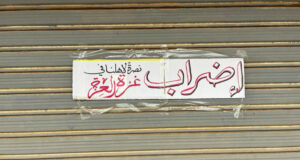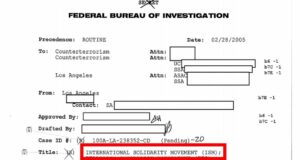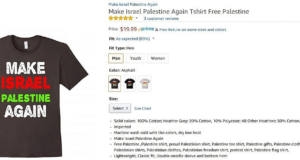by Ronnie Kasrils and Victoria Brittain. The Guardian, Friday May 19, 2006.
The Palestine crisis is now more dramatic even than apartheid, but it is the victims who are punished.
Western leaders are frustrating democratic elections in Palestine by withholding aid, and using collective punishment, an economic siege and starvation as political weapons in their efforts to get the Hamas government to accept their terms of business with Israel.
Never in the long struggle for freedom in apartheid South Africa was there a situation as dramatic as in Palestine today: even though children were killed for resisting a second-class education; the liberation movement’s leaders were locked up for decades on Robben Island; new leaders were assassinated; church leaders were poisoned; house demolitions and forced removals were frequent; and western governments told South Africans who their leaders should be, andwhat their policies should be.
The African National Congress confronted the military, economic and social power of white rule with a small guerrilla army, the mass support of the people and a moral authority that won it a following among millions around the world. Many now forget that the abhorrent apartheid system was treated as normal in the powerhouses of the world: entrenched interests meant the western media produced a sanitised version of its suffering and injustice.
Today western moral authority in the Middle East is gone, as much because of years of double standards in Palestine as because of the current disastrous war on Iraq. There is no excuse for not knowing the truth about what is now happening to the Palestinians. And the most recent diplomatic moves by the Quartet – the US, the EU, the UN and Russia – to alleviate suffering, while keeping up the ban on dealing with the Palestinians’ elected leaders, are totally inadequate.
Some plain speaking on the current crisis, and on what will happen without serious political intervention, shows why. The root problem is the intensifying Israeli occupation of Palestinian land. Despite the international court of justice ruling it illegal, Israel’s 390-mile wall snakes on through the West Bank, taking another 10% of the land and providing for the expansion of illegal Jewish settlements. Nearly 50,000 Palestinians are to be left in limbo on the Israeli side of the wall; 65,000 will face a daily commute through 11 transit points. Towns such as Qalqilya and Jayyous, formerly prosperous, with fertile hinterlands and good water supplies, are virtually encircled, with their farms and greenhouses on the Israeli side.
Meanwhile, Israel is withholding $50m a month in customs duties and tax owed to the Palestinians, and energy supplies have been cut off. Palestinian civil servants, teachers, doctors and security forces have not been paid for over two months. The potential for civil war between factions of armed, increasingly desperate men is so obvious that Palestinians are not alone in thinking that the US actually wants such self-destruction.
The Palestinians are having sanctions imposed on them for their political choice. But it is Israel, creating new facts on the ground to prevent the emergence of a viable Palestinian state, that should be facing UN sanctions. The UN secretary general, Kofi Annan, should use his last months in office to call for sanctions to bring about the implementation of the ICJ ruling on the Israeli wall, the closure of West Bank settlements and the release of Palestinian political prisoners. And those who care for freedom, peace and justice must build a global Palestine solidarity movement to match the anti-apartheid movement of the 1980s.
• Ronnie Kasrils was head of intelligence in the African National Congress’s armed wing and is now South Africa’s intelligence minister; he is writing in a personal capacity.
• Victoria Brittain is co-author with Moazzam Begg of Enemy Combatant
victoriacbrittain@hotmail.co.uk
 International Solidarity Movement Nonviolence. Justice. Freedom.
International Solidarity Movement Nonviolence. Justice. Freedom.


